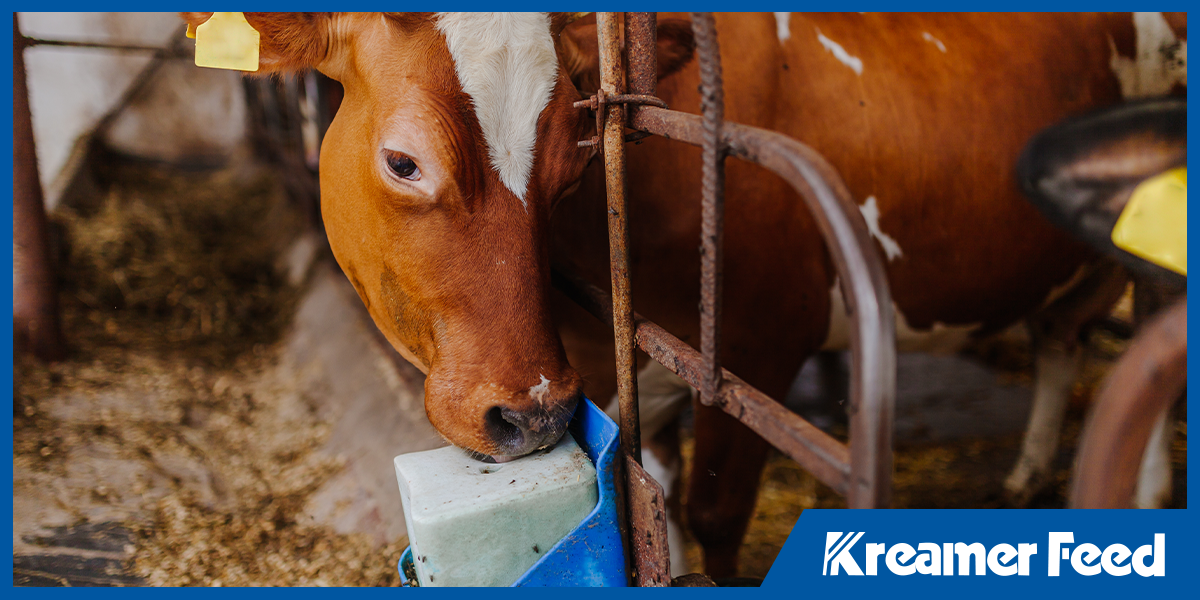Minerals may only make up a small part of an animal’s diet, but their impact is huge. From bone strength and reproduction to milk production and immune function, minerals are essential for maintaining overall health and productivity. The question most farmers face isn’t whether minerals are necessary, it’s how to provide them most effectively.
When it comes to livestock mineral supplementation, two common options dominate the discussion: mineral blocks vs loose supplements. Both serve the same purpose but differ in how animals consume them, how intake is controlled, and how well nutrients are absorbed. Understanding the pros and cons of each can help you choose the best fit for your operation.
At Kreamer Feed, we’ve worked with farmers since 1947 to develop feeding programs that deliver results. Here’s what you need to know to make a smart, balanced decision.
The Basics: How Each Option Works
Mineral blocks are compressed forms of essential minerals and trace elements, designed for animals to lick or chew as needed. They’re easy to place in pastures or pens and require little daily management.
Loose supplements, on the other hand, are granular mineral mixes offered in feeders, tubs, or troughs. Often used as free-choice loose minerals, animals can consume them at their own pace, and intake levels are easier to monitor and adjust.
The Advantages of Mineral Blocks
Mineral blocks are popular for good reason. They’re convenient, weather-resistant, and easy to handle. For farmers with large herds or remote pastures, blocks can be a low-maintenance way to provide access to key nutrients.
Advantages include:
-
Simple storage and placement in the field
-
Durable in changing weather conditions
-
Reduced labor for distribution and monitoring
However, ease of use doesn’t always mean optimal nutrition. While blocks can be handy, they may not allow animals to consume enough minerals to meet their daily requirements, especially during periods of high demand like lactation or growth.
The Advantages of Loose Mineral Supplements
Loose minerals offer more flexibility and precision. Because animals can consume them freely, it’s easier to achieve adequate nutrient intake, particularly for cattle, goats, and sheep with varying nutritional needs.
Advantages include:
-
Better control over mineral intake management
-
Easier to adjust formulas for specific livestock stages
-
Often result in more consistent nutrient absorption and performance
Farmers can also mix loose minerals directly into feed rations, making it simple to ensure every animal receives a balanced portion.
However, loose minerals require a bit more attention. They can clump in humid weather or lose palatability if exposed to rain. Proper feeders and location placement are essential to maintain quality and encourage regular consumption.
The Drawbacks: What to Watch Out For
Understanding block mineral disadvantages and the challenges of loose minerals helps in making a balanced choice.
Mineral block challenges:
-
Limited consumption for some animals, especially in cold or dry conditions when licking is reduced
-
Potential for uneven intake among animals
-
Difficult to measure exact consumption rates
Loose mineral challenges:
-
Susceptible to weather damage if not protected
-
Require more frequent monitoring and refilling
-
May increase initial setup costs for covered feeders
Both methods can work well when managed properly, but success depends on environment, animal behavior, and your overall mineral supplementation strategy.
Making the Right Choice for Your Farm
Choosing between mineral blocks and loose supplements ultimately depends on your operation’s size, climate, and management style. For smaller herds or areas with unpredictable weather, mineral blocks may be practical. For larger or performance-driven operations, free-choice loose minerals often provide better results and control.
At Kreamer Feed, we recommend starting with a mineral program that aligns with your animals’ specific nutritional demands, forage quality, and production goals. Our nutrition experts can help design a customized plan that ensures every animal gets what it needs for long-term health and productivity.
Whether you choose blocks or loose supplements, consistency is key. Providing access to the right minerals every day supports better feed utilization, improved fertility, and stronger immune systems.
Partner with Kreamer Feed for Smarter Mineral Nutrition
The mineral blocks vs loose supplements debate doesn’t have a one-size-fits-all answer. Both can be effective when managed correctly, but understanding how they fit into your overall feeding plan makes all the difference.
At Kreamer Feed, we believe that smarter nutrition starts with trusted partnerships. Our family-owned company has been producing high-quality feeds and supplements since 1947, backed by experience, transparency, and a commitment to farmer success.





0 comments